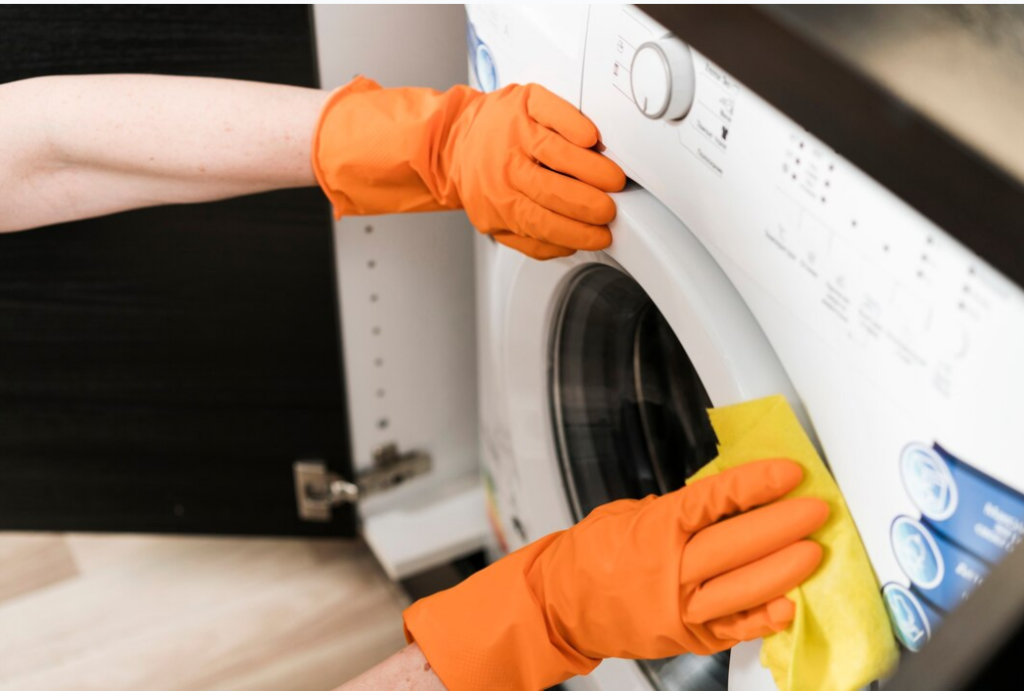Maintaining your washing machine is crucial for its longevity and optimal performance. By following these essential tips, you can be sure that your machine runs efficiently and effectively for years to come.
Regular Cleaning
One of the simplest yet most effective maintenance tasks is to clean your washing machine regularly. Over time, detergent residues and fabric softeners can build up inside the machine, leading to unpleasant odors and decreased efficiency. Run a hot water cycle with two cups of vinegar once a month to keep your machine clean and fresh.
Inspect Hoses
Hoses are vital components of your washing machine. Check them periodically for problems, such as cracks, bulges, or leaks. Replace them every three to five years to prevent potential water damage from hose failures. When inspecting hoses, ensure that they are securely fastened to the machine and the water supply. Loose connections can cause leaks and lead to water damage.
Avoid Overloading
Overloading the washing machine could strain its motor, leading to premature wear and tear. Follow the manufacturer’s guidelines for load size to ensure that your machine operates smoothly and efficiently. Overloading can also affect the quality of your wash, as clothes may not have enough space to move around freely. This can result in inadequate cleaning and increased wear on fabrics.
Find a Perfect Detergent
Applying the correct type and amount of detergent is essential for washing machine maintenance. High-efficiency (HE) detergents are specifically formulated for modern machines and produce fewer suds, reducing the risk of residue build-up. Always measure detergent according to the load size and soil level. Using too much detergent can cause excess suds, which can create residue buildup and reduced efficiency.
Level the Machine
An unbalanced washing machine may cause excessive vibration and noise during operation. Make sure to check if your machine is balanced correctly. Adjust the feet if necessary to ensure stability, which will protect internal components from damage. An unbalanced machine can also cause it to “walk” during spin cycles, potentially damaging your floor. To prevent this, ensure that all four feet are firmly in contact with the ground.
Clean the Lint Filter
Although not all washing machines have lint filters, those that do require regular cleaning. A clogged lint filter can hinder water drainage and affect washing performance. Check and clean the filter according to the manufacturer’s instructions to keep your machine running efficiently. If your machine doesn’t have a lint filter, lint can still build up in the drain pump filter or the drum itself.
Inspect the Agitator
Inspecting the agitator is vital for maintaining optimal washing performance in machines that have one. This component is essential for moving clothes around, and ensuring they are thoroughly cleaned. Regularly check the agitator for wear or damage. If you notice it isn’t working as efficiently, consider replacing it to keep your machine running at its best. It is important for you to know that there are different types, so depending on the type, you must search for the right agitator for washing machine. Many agitators also feature removable caps or dispensers that can collect residue or debris.
Prevent Mold and Mildew
To prevent mold and mildew from forming inside your washing machine, leave the door or lid open after each wash to allow moisture to evaporate. Wipe down the door seal and drum with a clean, dry cloth to remove any remaining moisture. For front-loading machines, the rubber door gasket is particularly susceptible to mold and mildew growth. Inspect the gasket regularly and clean it with a solution of water and mild detergent.
Maintain the Drum
Regularly inspect the drum for any foreign objects, such as coins or buttons, which can cause damage during operation. Clean the drum with a damp cloth and mild detergent to remove any dirt or residue that may have gathered over time. If you notice any rust or corrosion inside the drum, address it immediately to prevent it from spreading.
Schedule Professional Maintenance
While many maintenance tasks can be performed by homeowners, scheduling professional maintenance once a year can help identify and address potential issues before they become major problems. A qualified technician can inspect and service your washing machine, ensuring it operates at peak efficiency.
Conclusion
By adhering to these crucial maintenance practices, you can significantly increase your machine’s lifespan and maintain consistently clean laundry. Regular care not only prevents expensive repairs but also guarantees smooth and efficient performance.











